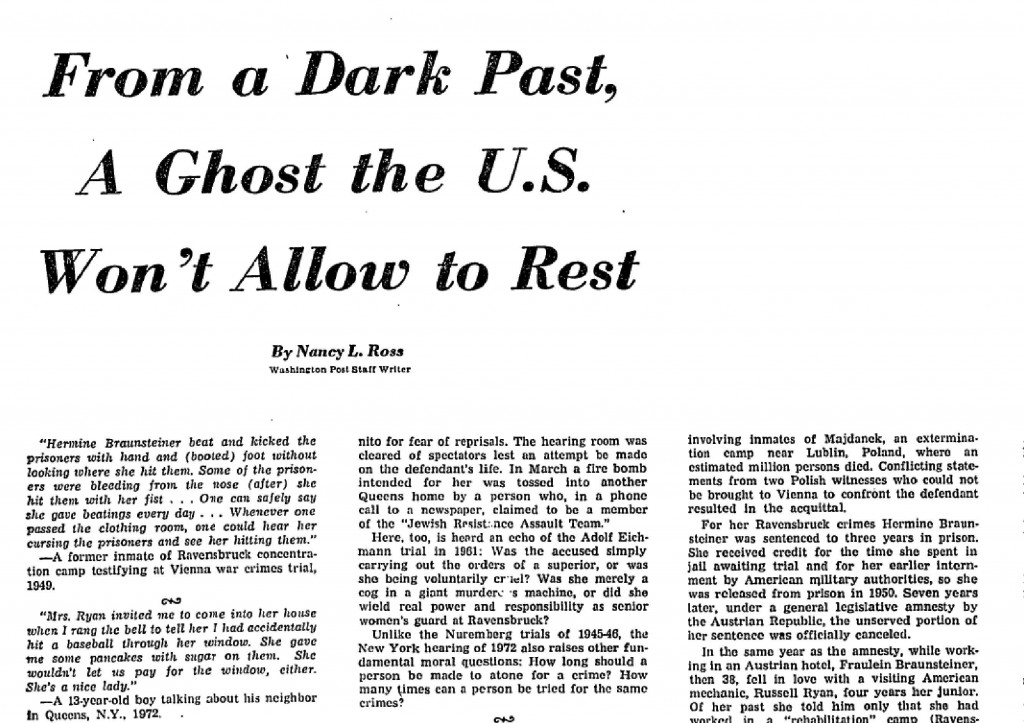
Is It Ever Too Late to Seek Justice?
My God, I knew this would happen. You've come.
—Hermine Braunsteiner Ryan, housewife in Queens, New York, former concentration camp guard

While the International Military Tribunal at Nuremberg and numerous subsequent courts tried Nazi officials and their collaborators, many lesser-known offenders were able to evade justice. Even some who had participated in the murder of thousands of innocent civilians slipped out of Europe, often assuming new identities and living out their lives undetected and unpunished. While individuals and governments tried to hunt them down in the years and decades following the end of World War II, the statute of limitations—20 years for murder—was running out.
Efforts to hold some of the remaining perpetrators accountable continue today, raising the questions: is it ever too late to pay for a crime? Is justice delayed justice denied?
On July 14, 1964, the New York Times revealed that a New York City housewife was in fact a former SS guard at the Ravensbrück and Majdanek concentration camps. She had been known as “the mare” because she brutally kicked inmates with her iron-tipped boots. Hermine Braunsteiner had already served two short prison terms in her native Austria for mistreatment of inmates in Ravensbrück, a criminal past she had not disclosed to her American husband or US authorities. In response to a West German request for her extradition to stand trial for her crimes at Majdanek, the US government stripped Braunsteiner Ryan of her US citizenship and initiated deportation proceedings, over which the extradition took priority. In 1973, she became the first Nazi criminal to be extradited from the US.
In 1981, Braunsteiner Ryan was sentenced to two life terms in prison. She was released in 1996 due to poor health and died three years later in a nursing home in Germany.
Critical Thinking Questions
Beyond the verdicts, what impact can trials have?
How were various professions involved in implementing Nazi policies and ideology? What lessons can be considered for contemporary professionals?
Is a perpetrator ever too old to prosecute? Is it fair to the victims and their families not to prosecute?
Does it serve justice to try some perpetrators when so many others have gone free? Is it ever too late for accountability?

